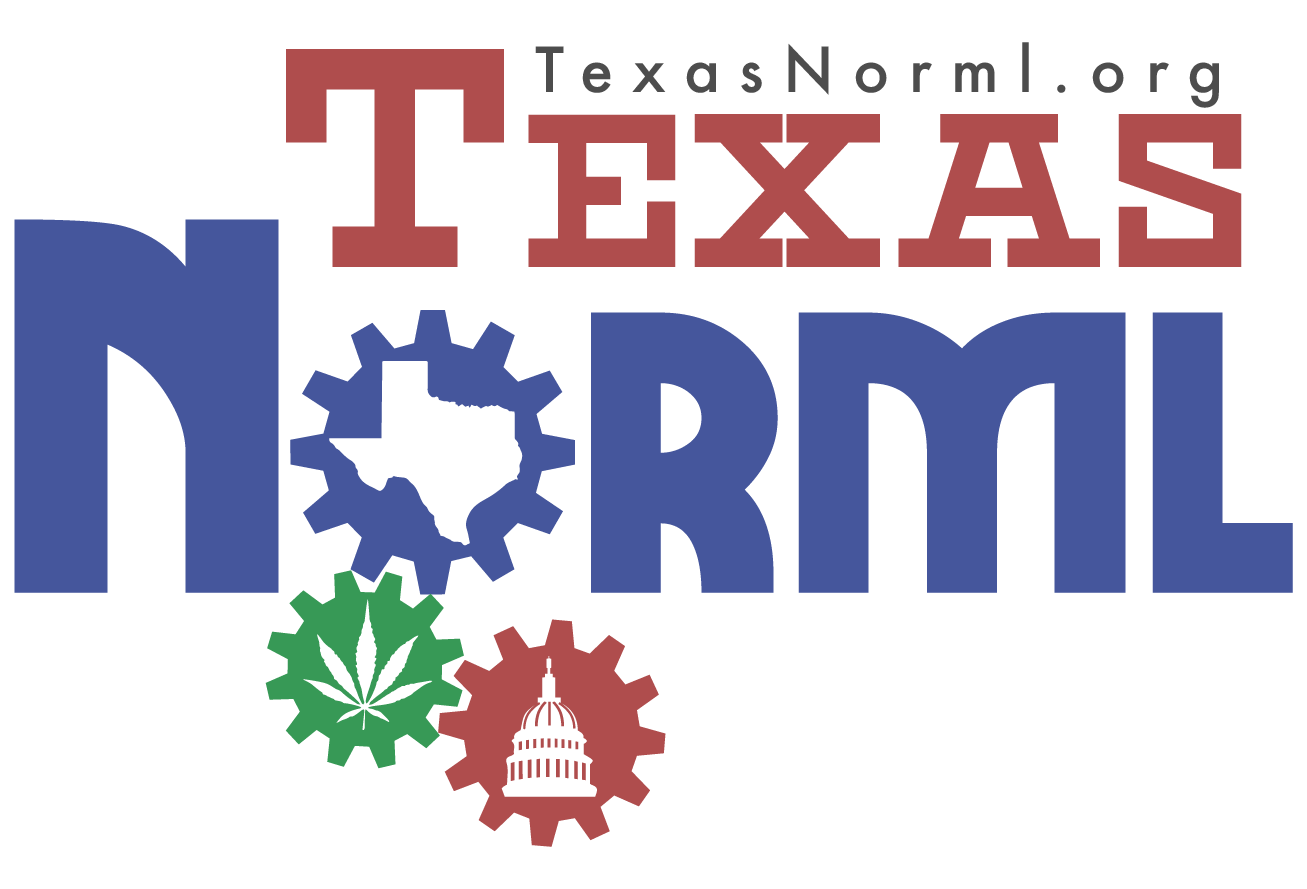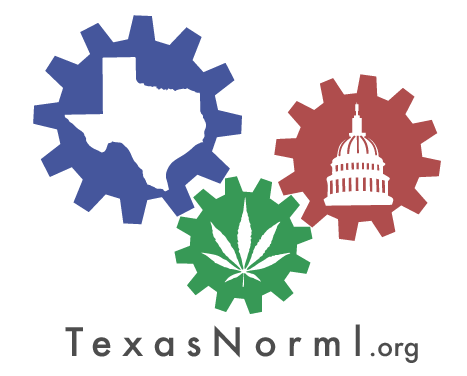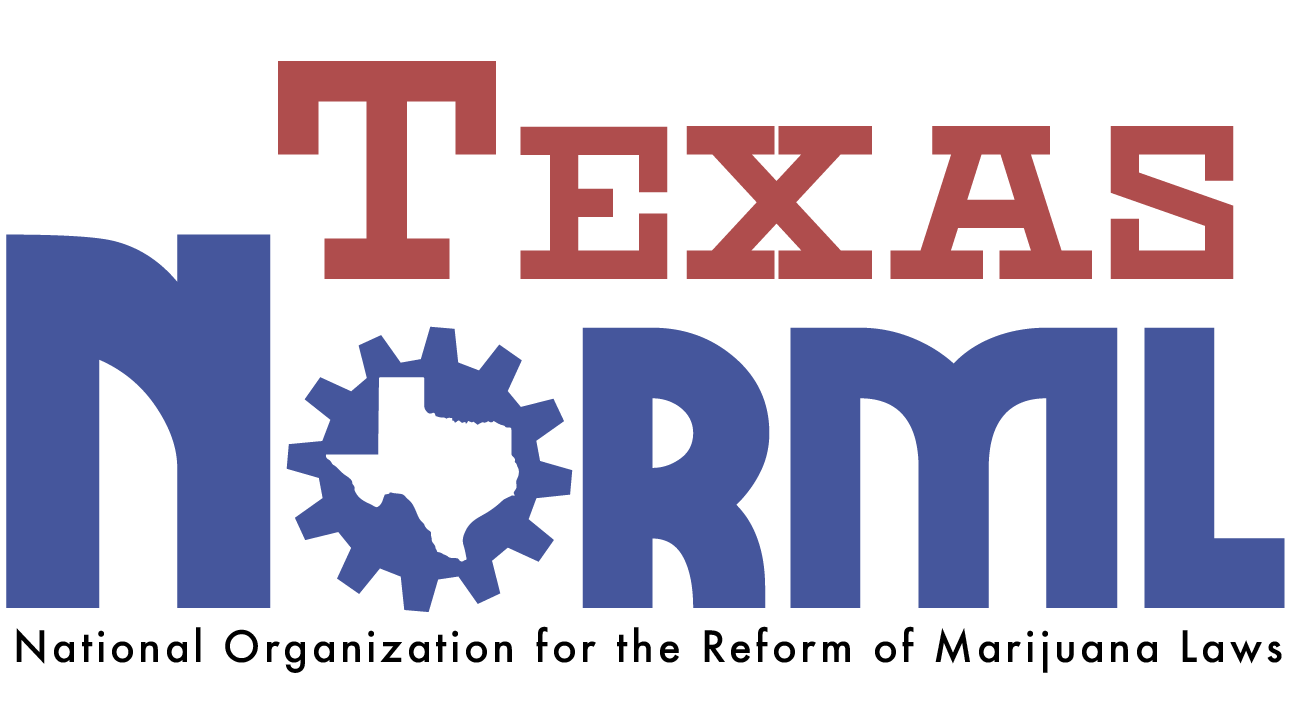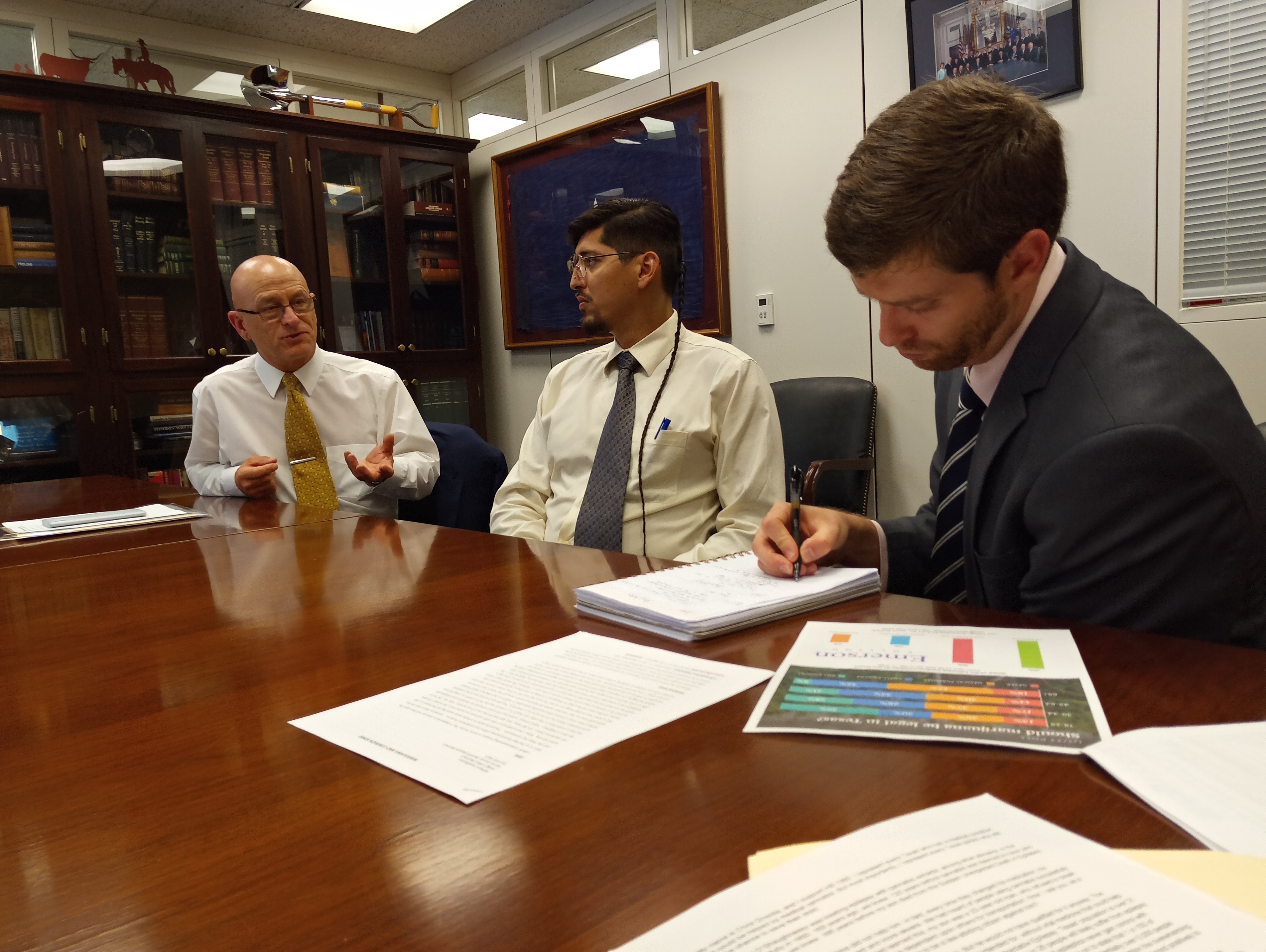TX NORML open meeting notes, November 2nd, 2011
During last month’s meeting we covered these stories:
– NORML’s Legalization petition leads White House petition site
– Crohn’s Disease patients reduce need for surgery & pharmaceuticals by using cannabis
– Former US Labor Secretary, Robert Reich, gives public support to marijuana legalization
– Kalamazoo, MI, voters to decide on deprioritization measure
– Tennessee Congressman, Steven Cohen, sends open letter to White House demanding marijuana be removed from Schedule I and placed at the lowest end of the Controlled Substances Act
– Colorado workgroup rejects proposal to enact THC per-se DUI law
– Last bank in Colorado who was working with dispensaries close all of those accounts, leaving dispensaries to do business in cash only
– Harborside Health in Oakland, CA, gets $2.4 Million tax bill from IRS, in attempt to shut them down
– RAND study finds increased crime in neighborhoods where dispensaries were forced to close
– NYC Police Commissioner issues order to end marijuana arrests where it was not in open view
– DOJ/ATF say MMJ patients cannot possess firearms
– Texas NORML Statewide Conference recap
Now for news from the past month:
White House response to NORML’s “We the People” marijuana legalization petition
The petition, which garnered 74,169 signatures, was by far the most popular petition submitted. The government response (released late on a Friday to avoid news cycles, we’ll note) repeats the same tired lies and classic misdirections. Most of all, it fails to answer NORML’s actual petition, which asks why marijuana isn’t regulated like alcohol.
Drug Czar, Gil Kerlikowski, in the response, made the claim that the Administration would base it’s marijuana policies on science and research, which on it’s face is BS.
He also cited data from the National Institutes on Drug Abuse which found that marijuana is mildly addictive.
What he didn’t say is that the same Federal agency, NIDA, has found that caffeine is more addictive than marijuana, as is nicotine and alcohol; all three of which are legal drugs and will not land you in jail for their use.
We talk about a fraction of the science and research at these monthly meetings, and none of the scientific data or studies we talk about have had any effect whatsoever on Federal marijuana policies.
In fact, representatives from the ONDCP and DEA have admitted that they don’t want to fund any research into the potential benefits of marijuana, but instead focus their efforts trying to find any negative side-effects from marijuana.
And they are sorely lacking on that.
But they still see fit to arrest, prosecute, and jail hundreds of thousands of Americans every year for marijuana offenses.
Federal policies on marijuana are being laid bare for the public, and our efforts are showing real progress.
We’ll discuss that progress later in the meeting.
In a follow up to one of last months stories, RAND Removes their Marijuana Dispensary Study Following Outcry From Law Enforcement
The RAND Corporation has removed a study from its website that found that a Los Angeles city-mandated closure of medical marijuana dispensaries in 2010 was associated with increased incidences of criminal activity.
RAND’s decision to shelve the study appears to have been motivated by criticism levied at the institute by Los Angeles city attorney’s office, which had previously argued that medical cannabis facilities were magnets for criminal activity. RAND’s study, published in September, refuted that claim, concluding, “[W]e found no evidence that medical marijuana dispensaries in general cause crime to rise.”
Previous analyses of crime statistics in Denver, Los Angeles, and Colorado Springs had separately disputed the notion that the locations of dispensaries are associated with elevated incidences of criminal activity.
RAND’s study “has been withdrawn pending further review,” said Warren Robak, a media spokesperson for the think tank. “I don’t have an estimate of when the review will be complete and the study will reappear.”
He explained, “We took a fresh look at the study based in part upon questions raised by some folks following publication.” Robak further added that the agency that was the “most vocal in its criticism of the study” was the L.A. city attorney’s office.
RAND had previously argued that their study was “the first systematic analysis of the link between medical marijuana dispensaries and crime.”
Dutch Government Announces Plans To Criminalize Potent Marijuana Strains
Following on the heels of the decision to ban foreigners from their coffeeshops, Dutch government officials have announced their intention to recriminalize strains of cannabis containing levels of THC, above 15 percent.
Officials were not specific as to when the proposed ban would take effect or how strictly the new policy would be enforced.
A representative from the Dutch Ministry of Justice said that the new policy will mandate cannabis retailers to self-regulate the potency of the cannabis products they sell, and that state inspectors will be granted the authority to randomly seize marijuana from Dutch coffee-shops for laboratory analysis.
Critics of the plan state that there exists little data associating increased health risks with higher potency cannabis, and emphasize that the compound is relatively non-toxic and incapable of causing death by overdose.
In recent months, Dutch Cabinet members have taken steps to clamp down on the cannabis coffee-shop industry, including proposing a ban on sales to foreign patrons.
Synthetic ‘Marijuana’ Products Popular Among Those Subject To Drug Tests, Survey Says
The use of herbal products containing synthetic cannabinoid agonists are popular among consumers because they are seldom detectable on standard workplace drug screens, according to survey data published online in the journal Drug and Alcohol Dependence.
Investigators at John Hopkins University and Towson University in Maryland conducted an Internet survey of adults who reported lifetime use of a synthetic cannabinoid retail product such as K2 or Spice.
Researchers reported: “Respondents were primarily male, Caucasian and [possessed at least] 12 years of education. … Spice products were most frequently obtained from retail vendors and smoked, though other forms of ingestion were endorsed. … Primary reasons for use were curiosity, positive drug effect, relaxation, and to get high without having a positive drug test.”
In March, the US Drug Enforcement Administration (DEA) exercised its ‘emergency scheduling authority’ to criminally prohibit the possession and sale of several of the synthetic cannabinoids contained in over-the-counter products such as Spice.
Anecdotal reports have suggested that some of these synthetic drugs could be potentially dangerous to users, with many reported ER visits.
This is really an example of the problems, danger, and damage, that prohibition of marijuana causes; driving people to use synthetic and potentially dangerous substances just so they can pass a drug test.
NORML takes no official position regarding the use or regulation of these synthetic products.
Cannabinoid, CBD, ‘Completely’ Prevents Chemotherapy-Induced Neuropathy, Study Says
The administration of the non-psychotropic plant cannabinoid cannabidiol (CBD) ‘completely prevents’ the onset of nerve pain associated with chemotherapy treatment, according to preclinical data published in the journal Anesthesia and Analgesia.
Investigators at Temple University assessed the effect of CBD in an animal model of on paclitaxel-induced allodynia (pain resulting from an otherwise innocuous stimulus).
“We found that cannabidiol completely prevented the onset of the neuropathic, or nerve pain caused by the chemo drug Paclitaxel, which is used to treat breast cancer,” said the study’s lead investigator.
Researchers concluded, “Our preliminary findings therefore indicate that cannabidiol may … therefore be effective at preventing dose-limiting paclitaxel-induced peripheral neuropathy in humans.
Cannabidiol has been previously shown to inhibit breast cancer metastasis in preclinical settings.
In 2010, a series of FDA-approved clinical trials concluded that inhaled cannabis significantly reduces neuropathy compared to placebo in human subjects.
Deaths from painkiller overdose triple in decade
The CDC released the report which found the number of overdose deaths from powerful painkillers more than tripled over a decade — a trend that a U.S. health official called an epidemic.
Prescription painkillers such as OxyContin, Vicodin and methadone led to the deaths of almost 15,000 people in 2008, including high profile deaths such as that of actor Heath Ledger. That’s more than three times the 4,000 deaths from narcotics in 1999.
And this comes at the same time that the Federal Government is cracking down on cannabis; a non-toxic, alternative to many of these drugs, and that has no known lethal overdose level.
And in some of the medical marijuana states, regulations are being suggested that Doctors must tell patients that marijuana is addictive and dangerous?!?
This is the epitome of insane public policy.
Study reports Alcohol Is “More Than Twice As Harmful As Cannabis”
According to a new review published online in the Journal of Psychopharmacology, the journal of the British Association of Psychopharmacology:
Investigators at the Imperial College of London assessed “the relative physical, psychological, and social harms of cannabis and alcohol.”
Authors reported that cannabis inhalation, particularly long-term, contributes to some potential adverse health effects, including harms to the lungs, circulatory system, as well as the exacerbation of certain mental health risks.
By contrast, authors described alcohol as “ a toxic substance” that is responsible for nearly five percent “of the total global disease burden.”
Researchers determined, “A direct comparison of alcohol and cannabis showed that alcohol was considered to be more than twice as harmful as cannabis to [individual] users, and five times more harmful as cannabis to others (society). … As there are few areas of harm that each drug can produce where cannabis scores more [dangerous to health] than alcohol, we suggest that even if there were no legal impediment to cannabis use, it would be unlikely to be more harmful than alcohol.”
Of course, this doesn’t come as any surprise, and just last week,
A study that was completely ignored by the mainstream media reported that alcohol consumption increased lung cancer risk by 30 percent.
The study was presented at the annual meeting of the American College of Chest Physicians.
The study included approximately 126,000 people who enrolled between 1978 and 1985, and were followed until 2008. The researchers found 1,852 people developed lung cancer during that time.
Having three or more alcoholic drinks a day increased lung cancer risk by 30 percent. Heavy beer consumption carried a slightly higher risk than wine and liquor, Medical News Today reports.
“Heavy drinking has multiple harmful effects, including cardiovascular complications and increased risk for lung cancer,” lead researcher Stanton Siu, MD, of Kaiser Permanente said in a news release. “We did not see a relationship between moderate drinking and lung cancer development.”
The researchers conclude that avoidance of any type of heavy alcohol intake may reduce the risk of lung cancer.
Montana: Voters Will Decide In 2012 On Statewide Medical Cannabis Measure
Montanans next November will decide whether to reinstate the provisions of the 2004 voter-approved medical marijuana initiative.
Voters initially approved Montana’s 2004 medical marijuana law by 62 percent.
The measure’s proponents, Patients for Reform–Not Repeal, gathered sufficient signatures from registered voters to place Initiative Referendum 124 (I-124) on the 2012 statewide ballot, a representative from the Secretary of State’s office affirmed this week.
Earlier this year, state lawmakers approved Senate Bill 423 — amending Montana’s nearly seven-year-old medical marijuana law. The act took effect on July 1, and we’ve discussed it many times during our meetings.
The intent of SB 423 was to reduce total number of state-qualified medical cannabis patients from an estimated 30,000 to fewer than 2,000. Among its provisions, the new law requires that advising physicians be reported to the state Board of Examiners if they recommend cannabis to more than 25 patients per year. The measure also imposes stricter qualifying requirements for chronic pain patients and prohibits licensed caregivers from receiving any financial compensation for providing cannabis to qualified persons.
Since the enactment of SB 423, the total number of state authorized medical marijuana patients has fallen some 15 percent.
Passage of I-124 would repeal SB 423, said a spokeswoman for the I-124 campaign: “This new program does not work. … Montanans agree that patients with serious conditions should have access to medical marijuana and that government has no business interfering in medical decisions between those patients and their doctors.”
Senate Bill 423 will remain in effect until next November’s vote.
Rhode Island: Governor Pulls Plug On State’s Long Awaited Marijuana Dispensing Program
Governor Lincoln Chafee has announced that he is disbanding a program initially approved by lawmakers in 2009 that sought to oversee the state-licensed production and distribution of cannabis to authorized patients.
Chafee had temporarily suspended the program in May after U.S. Attorney Peter F. Neronha threatened federal prosecution against those involved with the cultivation or distribution of cannabis. Representatives from the Rhode Island Department of Health had previously announced the selection of three applicants to operate the state’s first-ever, government licensed medical cannabis dispensaries, which were scheduled to open this past June.
Gov. Chafee stated that the threats from the Dept. of Justice and the US Attorney in R.I. are what drove him to do this, as he suggested in May.
Rhode Island lawmakers initially enacted legislation in 2007 allowing for the cultivation and use of cannabis by qualified patients. In 2009, lawmakers voted 102 to 3 to expand the law to allow for a limited number of state-licensed medical cannabis distribution centers.
Similar state-regulated medical marijuana production and distribution facilities are operational in Colorado, Maine, and New Mexico.
Over 3,500 Rhode Islanders are authorized under state law to use cannabis.
California’s Largest Doctor’s Association Calls For Legalizing And Regulating Cannabis
The California Medical Association (CMA), representing over 35,000 physicians nationwide, has called for the ‘legalization and regulation’ of cannabis for adults, according to a white paper adopted by the group on Friday.
In 2009, the CMA adopted a resolution acknowledging that the “criminalization of marijuana [is] a failed public health policy.”
The new CMA paper, entitled ‘Cannabis and the Regulatory Void,’ recommends that cannabis be taxed and regulated “in a manner similar to alcohol.” The paper also calls for the reclassification of cannabis under federal law “in order to encourage research leading to responsible regulation.”
It states: “In order to allow for a robust regulatory scheme to be developed, cannabis must be moved out of its current Schedule I status. … Rescheduling cannabis will allow for further clinical research to determine the utility and risks of cannabis, which will then shape the national regulatory structure for this substance.”
The CMA is the largest physician group in California and the first statewide medical association to adopt an official position in favor of legalizing cannabis.
Department Of Justice Announces Stepped Up Enforcement Efforts Targeting California Medical Cannabis Providers
United States Deputy Attorney General James Cole, along with the four US Attorneys from California, publicly announced their intention Friday to escalate federal efforts targeting the state’s medical cannabis dispensaries and providers.
These efforts include the increased use of civil forfeiture proceedings against dispensary owners and their landlords, officials stated.
The DOJ announcement came just days after the Internal Revenue Service determined that marijuana dispensaries can no longer claim standard business expenses such as payroll, security or rent on their federally filed tax returns.
And, the IRS as we talked about last month, has sent a $2.4 Million tax bill to Harborside Health in Oakland; one of the biggest medical marijuana clinics in the country.
Also, as we heard last month, the Federal Government is currently stripping 2nd Amendment rights from legal medical marijuana patients.
The Fed’s recent actions conflict directly with the President’s pledge to cease utilizing “Justice Department resources to try and circumvent state laws on this issue.”
But, the attacks on medical marijuana don’t stop there:
Federal regulators have cracked down on banks in Colorado, California and Michigan that had previously conduct business with medical cannabis dispensaries, forbidding these financial institutions from allowing cash deposits or processing credit/debit cards from state or locally approved canna-businesses.
Due to this, dispensaries in Colorado no longer have any banks in the state that will operate accounts for them, leaving them to conduct their business in cash only.
The Federal attorneys in California have sent hundreds of legal warnings to the landlords of properties that rent to medical cannabis businesses (retail, delivery, cultivation and testing) warning that their properties and assets are subject to swift civil forfeiture proceedings, and that they themselves may be subject to decades in prison.
This is an attack that could take place in other medical marijuana states as well.
All of this adds up to the biggest onslaught on legal medical marijuana ever. Regardless of what the Obama Administration has said in the past, the fact is that it has now undertaken the most expansive attack on medical marijuana, with the intent of crippling the quickly expanding legal medical marijuana business.
And when you consider it all, perhaps the most logical next step for us in the movement is to push even harder, full force, for the outright legalization of marijuana for responsible adult use, bypassing the medical issue.
Why?
Medical marijuana is under serious attack, in every state which has legalized it’s use. Many of the attacks against medical marijuana hinge on the argument that the laws are simply an inroad for recreational users.
This is a problem, but the fact remains that legalizing marijuana for adult use (with no medical restrictions) is the best way to protect patients’ access to cannabis.
NORML’s ultimate goal is to remove all criminal penalties for the responsible adult use of marijuana, and when we achieve that goal, patients, as well as non-patients, will be protected from prosecution.
And the best news this month, should energize us all to get more active on this front:
For First Time Ever, Gallup Poll Shows Majority Support For Marijuana Legalization Nationwide
Gallup has released poll results showing that, for the first time in it’s 42 year history of asking the question, that a majority of Americans favor marijuana legalization.
The final total was 50% in favor of legalization, and just 46% opposed, with 4% undecided.
Support for marijuana legalization remains greatest in the Western states (55%) and majorities support legalization in the Midwest (54%) and East (51%).
Only voters in the South still oppose marijuana legalization (44%). Men still support legalization at a much greater rate than women (55% vs. 46%).
Support is also greatest among younger Americans (62%), Democrats (57%), and liberals (69%).
However, support for legalization has increased even in demographics generally opposed to legalization.
Compared to Gallup’s poll last year, support increased 4% points in the South, 12% points in the Midwest, and 6% points among 50-64, but fell 1% among 65+. Support rose 6% points among Republicans, and 4% points among conservatives.
Marijuana legalization is becoming more popular with just about everyone.
And, on top of the majority support in the public;
In response to the recent Federal crackdown:
California Attorney General & Lawmakers Criticize Federal Government’s Crackdown On State’s Medical Marijuana Providers
State Attorney General Kamala Harris has called on US Department of Justice officials to limit their ongoing actions against medical cannabis providers in California. In a statement issued by the Attorney General last Thursday, Harris criticized that “an overly broad federal enforcement campaign will make it more difficult for legitimate patients to access physician-recommended medicine in California.”
Last week, State Senator Mark Leno and Assemblyman Tom Ammiano called on federal prosecutors to “cease (their) senseless assault” on medical marijuana operators and those they do business with.
At a Press Conference last Tuesday, Senator Leno said, “I urge the federal government to stand down in its massive attack on medical marijuana dispensaries. California voters intended that patients should have safe and affordable access to medical marijuana.”
Both lawmakers have requested meetings, but have yet to meet with Justice Department officials.
Seven members of the San Francisco Board of Supervisors have also signed on to a nonbinding resolution urging the federal government to cease interfering with the enforcement of the state’s medical cannabis laws.
And, in a bipartisan letter signed by nine members of the U.S. House of Representatives, the lawmakers criticized what they called an “unconscionable” multi-state effort targeting medical marijuana dispensaries. They also called for the reclassification of marijuana as a controlled substance subject to fewer federal restrictions.
On Tuesday of this week, dozens of marijuana law reform activists gathered in San Francisco outside of a $7,500-per-plate Presidential fundraiser to protest the Obama Administration’s flip-flop on medical marijuana policy.
Speaking at the rally, Assemblyman Ammiano called the Administration’s crackdown efforts “un-Democratic and the worst case of thuggery.”
Medical cannabis advocates on Tuesday also announced plans to draft a statewide ballot initiative for 2012 that would seek to impose increased state-oversight over the production and distribution of medical marijuana.
The proposed plan would likely be modeled after legislation enacted in Colorado, where the state has licensed over 1,000 facilities to dispense cannabis to authorized users.
Upcoming Events & Announcements
Our “Fall Harvest” Members’ Mixer is scheduled for Friday, November 4th, at a central Austin location, and will be perhaps one of our best Members Mixer’s yet! We’ll have live music provided by Ghosts Along The Brazos & RPD’s Cage Free Acoustic, and comedy from our bud Kat Ramzinski. Delicious food for the mixer will be provided by Ararat!
Cost for this Members Mixer is; for members $20, guests of members $30, and for a membership/ticket combo $35
And that price is all inclusive; food, music, and Texas NORML gift bags, and great company with your fellow activists!
You can get your entry to the Members Mixer tonight, if you so wish, or you can get them online on our website, TexasNORML.org.
Texas NORML Women’s Alliance, Race for the Cure, Sunday, November 13th, in downtown Austin.
You can make a contribution to our team at the table tonight.
Next Monthly Meeting is Wednesday, December 7th, right here, same time.



